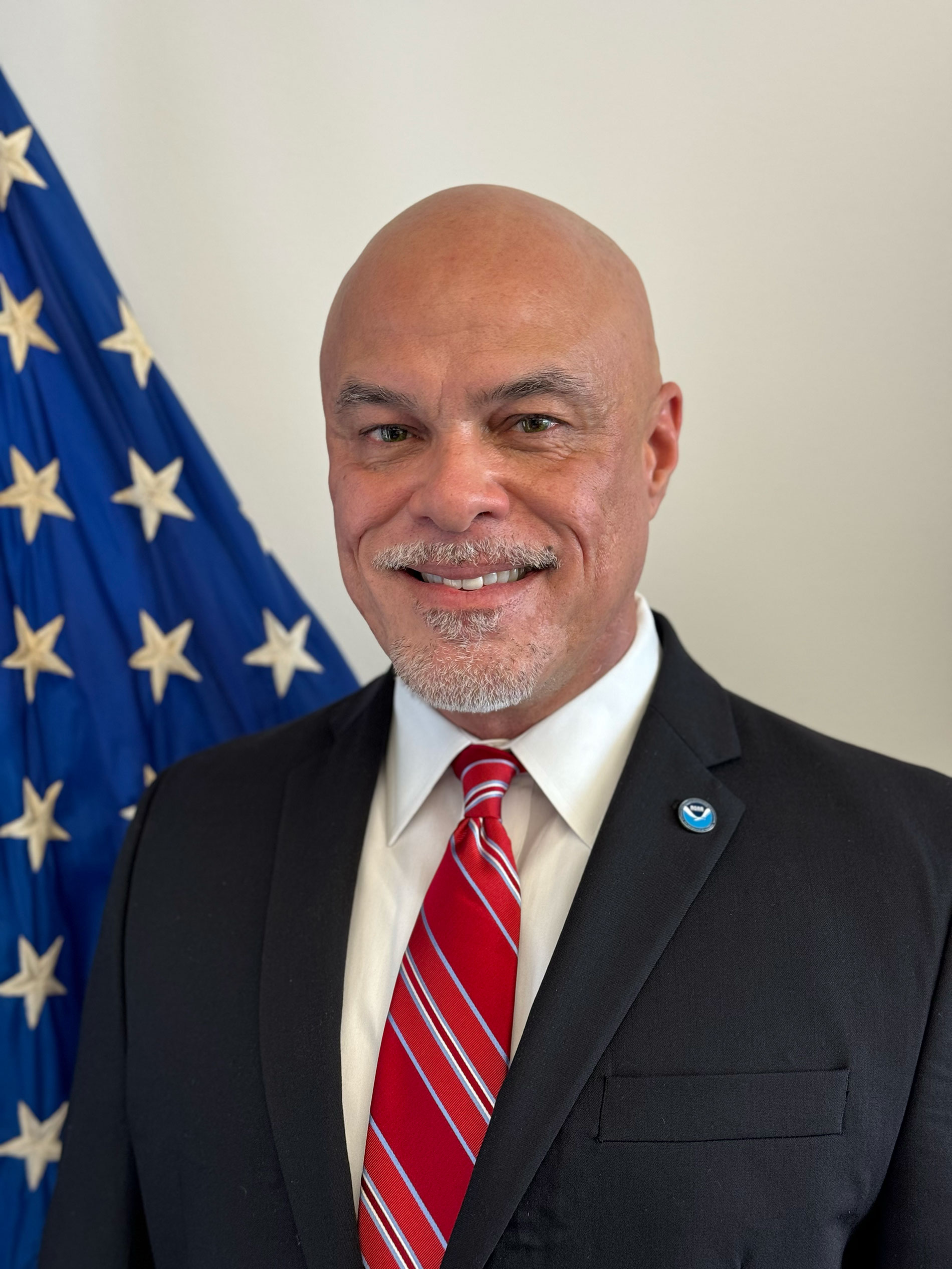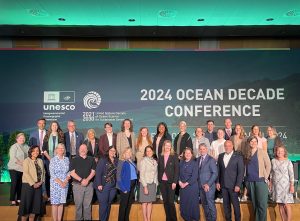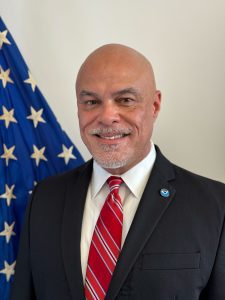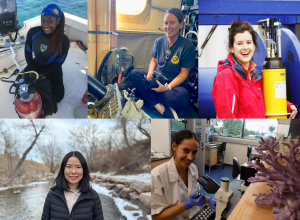John V. Cortinas, Jr., Ph.D., director of NOAA’s Atlantic Oceanographic and Meteorological Laboratory in Miami, Florida, is the new Deputy Assistant Administrator for Science with NOAA’s Office of Oceanic and Atmospheric Research, also referred to as NOAA Research. John joins the NOAA Research leadership team with a wealth of experience and more than 30 years of dedicated service to NOAA and its Cooperative Institutes. John officially began in his new role on April 11, 2024.
John began his career as a research meteorologist at the University of Oklahoma’s Cooperative Institute for Mesoscale Meteorological Studies (now the Cooperative Institute for Severe and High-Impact Weather Research and Operations), working with scientists at NOAA’s National Severe Storm Laboratory on severe weather and hazardous winter weather research and applications, eventually becoming the Cooperative Institute’s Assistant Director.
After 11 years of research focused on improving hazardous weather products and services, John became the director of NOAA Research’s Cooperative Institute Program. In this role, he guided the day-to-day administration, grant management, and policy development of NOAA’s network of Cooperative Institutes scattered across the United States. The program supports scientists and students who collaborate with NOAA researchers to meet the agency’s mission goals.
In 2010, John was tapped to lead the Office of Weather and Air Quality (now called the Weather Program Office) at NOAA Research. The program supports research to advance weather information, forecasts, products, and services for NOAA and the Nation. As director, John also oversaw NOAA’s Weather Research Program, the Joint Technology Transfer Initiative to transition science and technology advancements into operations, and the expansion of social science used in weather research.
Most recently, he led the Atlantic Oceanographic and Meteorological Laboratory since 2019 and oversaw an expansive science portfolio as AOML director that focused on studying the weather, ocean, and ecosystems in the greater Atlantic Ocean region. The lab is a recognized leader in Earth system research focused on the Atlantic Ocean, its role in climate change, and the impacts of global changes on the Atlantic Ocean region.
Throughout his career, John has been a steadfast advocate for underrepresented communities in science, technology, engineering, and math (STEM). He is a member of several scientific organizations that work to improve diversity within STEM, such as the Society for the Advancement of Chicanos and Native Americans in Science, Out to Innovate, Latinos@NOAA, NOAA Pride, the American Geophysical Union, and the American Meteorological Society (AMS), for which he is currently one of the initial members of the AMS Culture and Inclusion Cabinet.
As the new Deputy Assistant Administrator for Science, John will oversee and evaluate NOAA’s research and development portfolio, including 10 national laboratories across the United States that employ over 600 federal employees. Key to this guidance will be his emphasis on people, science, and communication. “First and foremost, people are the foundation of NOAA’s ability to innovate and discover,” according to John. “Whether conducting research, providing IT or administrative support, developing cutting-edge technology, or maintaining facility infrastructure, every employee’s work directly impacts NOAA’s ability to make a positive difference in the world.”
John obtained a Bachelor of Science in Meteorology from the Metropolitan State University in Denver, Colorado, and a Ph.D. in Geophysical Sciences from the Georgia Institute of Technology in Atlanta, Georgia. He is the recipient of numerous honors and awards, including the prestigious Presidential Rank Award for Meritorious Service bestowed in 2023 for exceptional leadership by President Joe Biden. He is also a Fellow of the American Meteorological Society.





